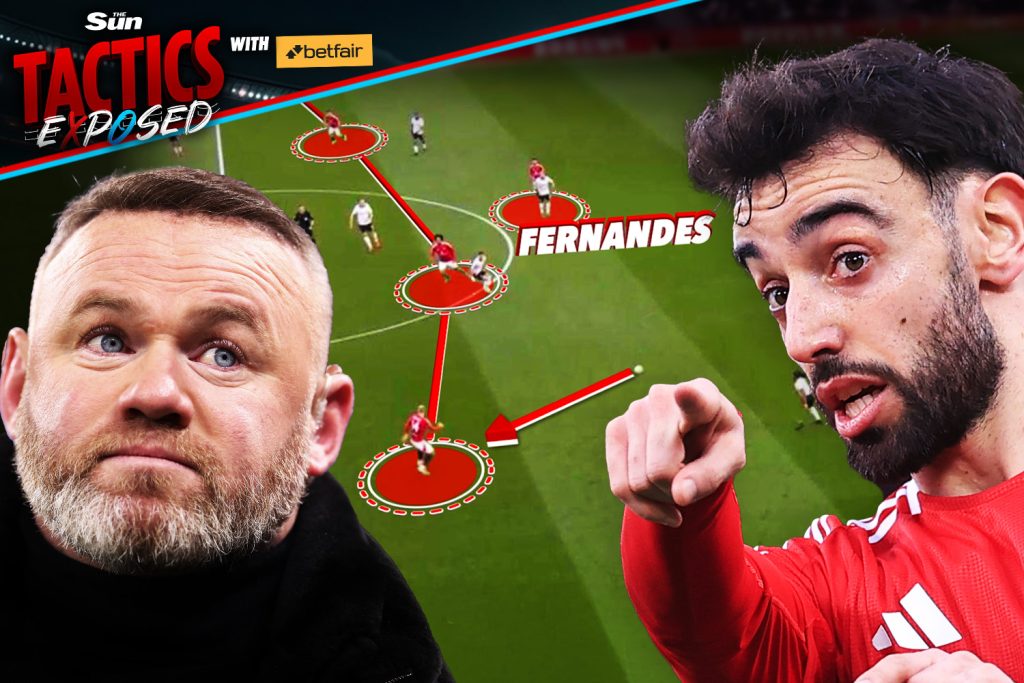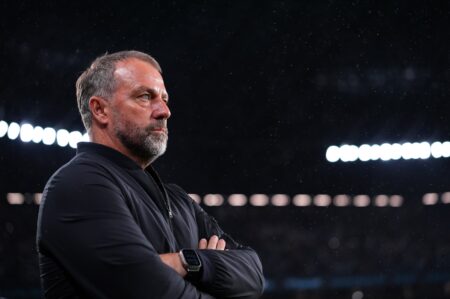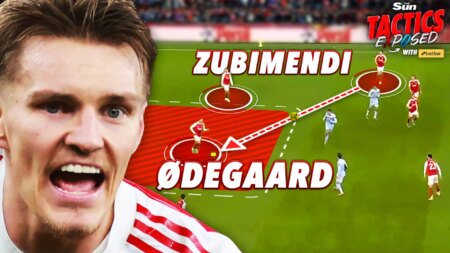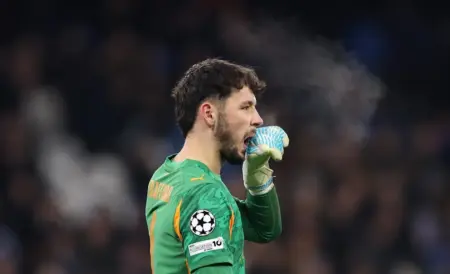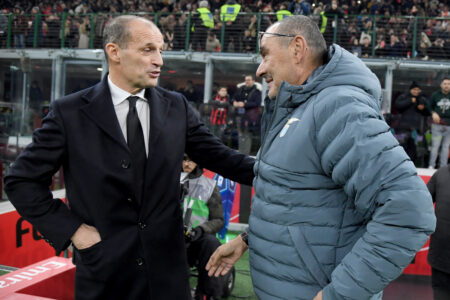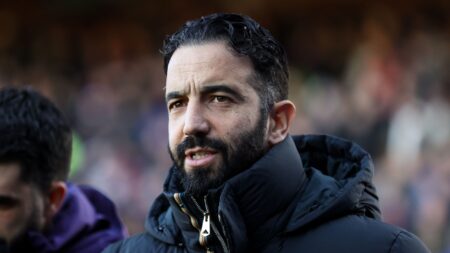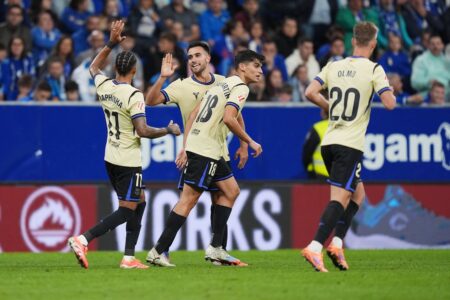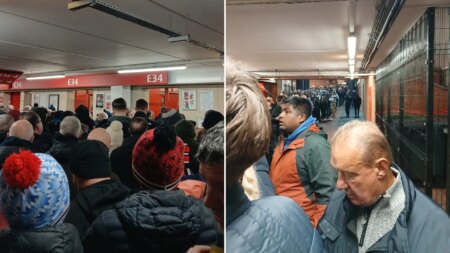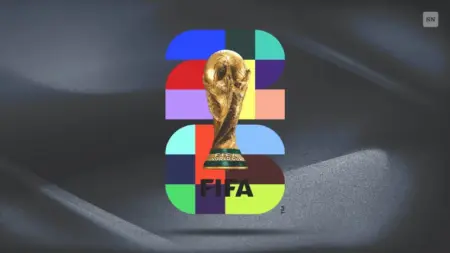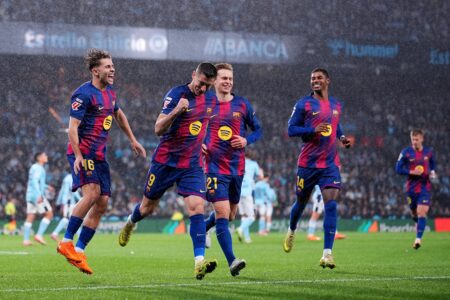Man Utd’s FA Cup Exit: A Mix of Promises and Flaws
Manchester United’s FA Cup journey came to an abrupt halt on Sunday with a penalty shootout defeat to Fulham. The game, while filled with moments of brilliance and strategic insights, ultimately exposed some critical weaknesses in the team’s setup. Despite the disappointment, there were both positives and negatives to take away from the performance.
Bruno Fernandes: Anchoring the Midfield
One of the standout positives from the match was Bruno Fernandes’ disciplined and effective role as a pivot in the midfield. Unlike his more scattered performance against Ipswich, where he often ventured into the heart of the defense, Fernandes held his position and provided the necessary structure for United’s attack. This disciplined approach allowed the team to progress the ball more effectively through the lines, with Christian Eriksen and Diogo Dalot frequently dropping back to support the play. Fernandes’ heat map and touch statistics indicated a more focused and central role, contributing to the team’s overall cohesion. His goal from outside the box was a testament to his captaincy and technical ability, providing a crucial equalizer for the Red Devils.
Rasmus Hojlund and the Burning Question of Striker Performance
The performance of Rasmus Hojlund remained a contentious point. Despite making good runs, Hojlund struggled to make a significant impact, failing to capitalize on the few chances that came his way. The lack of service and attacking dynamism was a recurring issue, and it was unfortunate that Alejandro Garnacho did not start alongside him. The introduction of 17-year-old Chido Obi in the 68th minute significantly changed the game’s dynamics. Obi’s direct running and physical presence injected a much-needed spark into United’s attack, creating multiple scoring opportunities. His performance, culminating in a near-winner saved by Bernd Leno, highlighted the potential of the young player and raised questions about Hojlund’s current role in the team.
The Role of Wing-Backs and Creative Gaps
The wing-back positions were a mixed bag. Diogo Dalot and Noussair Mazraoui, while often in the right areas, lacked the pace and aggression needed to stretch the opposition’s defense. Dalot’s crosses rarely resulted in meaningful chances, and the team’s left flank was notably less effective. The entrance of Garnacho provided a much-needed boost, but the imbalance on the right side remained an issue. Amorim’s reliance on the 3-4-3 formation, despite its strategic merits, seems to be hindered by the current limitations of his wing-back options. The addition of more attacking wing-backs, such as Amad Diallo and Patrick Dorgu, could be crucial for the team’s creativity and overall performance.
The Back Three: Solid but Under Threat
The back three of Leny Yoro, Harry Maguire, and Matthijs de Ligt provided a solid defensive foundation, successfully neutralizing Fulham’s attacking threats. De Ligt’s cross-field passes were particularly effective, offering a strategic out ball and stretching the play. However, the defensive setup was tested by Fulham’s set-piece prowess. The opening goal, a familiar scenario from two years ago, exposed United’s zonal defending and highlighted the need for better coordination and awareness in such situations. Despite these challenges, the back three’s overall performance was commendable, maintaining a stable defensive line and limiting Fulham’s open-play opportunities.
Calvin Bassey: The Fulham Hero
Calvin Bassey emerged as the shining light for Fulham, providing the decisive moment with his well-taken header from a corner. Bassey’s goal was a product of effective set-piece strategy, as Fulham dragged out the first zone to create a gap in the second zone. This tactical execution paid off, with Antonee Robinson’s near-post flick setting up Bassey for a precise finish. Bassey’s performance was a testament to Fulham’s well-organized defense and their ability to capitalize on set-pieces, a recurring theme in their recent matches.
Post-Match Reflections and Looking Forward
In the aftermath of the defeat, manager Ruben Amorim was quick to defend his tactics and playstyle, countering Wayne Rooney’s criticism that labeled him naive. Amorim’s focus on a structured and disciplined approach, particularly in midfield, showed progress, albeit small. However, the lack of creativity and attacking impetus remains a pressing concern. The introduction of younger, more dynamic players like Chido Obi and the potential return of Amad Diallo and Patrick Dorgu could provide the spark United needs to break through defenses and create more goal-scoring opportunities. As United prepare for their upcoming league game against Arsenal, the need to address these issues and find a balanced lineup is more critical than ever.

